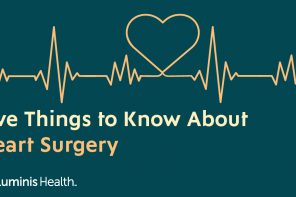In the medical field, ironically, it is easy to adopt an unhealthy diet by eating lunches brought to the office from local restaurants, snacking at desks or ducking into a doctor’s lounge to score a bagel or doughnut. Each meal or snack seemed harmless enough but I surely wasn’t burning off nearly the amount of calories I was consuming. After a while, I stopped checking my weight. I already knew what the scale would tell me. I knew at that point that I had to rediscover healthy habits, which meant paying more attention to my diet.
Many of my patients know I like to address the subject of weight management and body mass index (BMI) at office visits. The consequences of being overweight or obese are real and prevalent. Obesity is directly related to hypertension, hypercholesterolemia and the development of diabetes. Indirectly, excess weight is related to heart disease. This underscores the importance of controlling your weight. But that’s not to say that weight loss and weight maintenance aren’t challenging.
READ MORE: Heart smart: All about fats
Habits, both good and bad, are easy to fall into. When I took a new position several years ago, my focus was on my career and the challenges of a new work environment. Like many people, I used food to help manage my stress. This had predictable results. I was aware of what was happening but work and family took priority before my health. I made all the usual excuses but eventually realized that I needed to practice what I preached. My goal: lose 20 pounds. It was an arbitrary goal but it would get me back to my pre-wedding weight and bring my BMI under 25 and out of the overweight range.
So, how’d I do it?
My first big change was to break the habit of snacking on high-calorie foods. I brought bags of carrots, celery and snap peas to work for those times when my hunger was distracting. I kept the size of my meals in check as well. If I ate until I was full, I would often feel stuffed and tired 30 minutes later. Overall, I tried to limit my daily caloric intake to 1,500 calories or less. I won’t lie, I was frequently hungry. But there is nothing wrong with feeling hungry. That’s what fat burning feels like (thank you, Oprah!).
This was not a deprivation diet. I did not skip meals. Occasionally, I had chocolate, bacon, chicken wings and ice cream. But I ate them in moderation and not regularly. I did not adhere to any particular diet nor did I pay attention to the glycemic index, though I mostly avoided concentrated sweets. As a result, I lost 10 pounds in one month. I was halfway to my goal.
I added exercise to accelerate my weight loss and maintain muscle tone. Initially, I ran and occasionally I added weights. Usually my workouts lasted 30 minutes but never longer than 45 minutes, and I never worked out more than four days each week.
I dropped roughly 13 percent of my body weight in several months. I wanted to regain a certain level of fitness, and set an example for my kids and patients. My weight loss required consistency and dedication. I worked out, downloaded apps (check out My Fitness Pal), weighed myself regularly and drank a lot of water. My family’s encouragement kept me motivated.
A healthy diet is a major factor in reducing your risk for illnesses, one of them being heart disease. According to the American Heart Association, maintaining a healthy diet and lifestyle are your best weapons to fight cardiovascular disease. Take small steps, like I did. Start working towards prioritizing your health and remember that it’s your choices that ultimately count. It’s not only good for you, it’s good for your heart. You can do this!
 Salvatore Lauria, MD, is a cardiologist with Anne Arundel Medical Group (AAMG) Cardiology Specialists. To schedule an appointment, call 443-481-6700.
Salvatore Lauria, MD, is a cardiologist with Anne Arundel Medical Group (AAMG) Cardiology Specialists. To schedule an appointment, call 443-481-6700.




